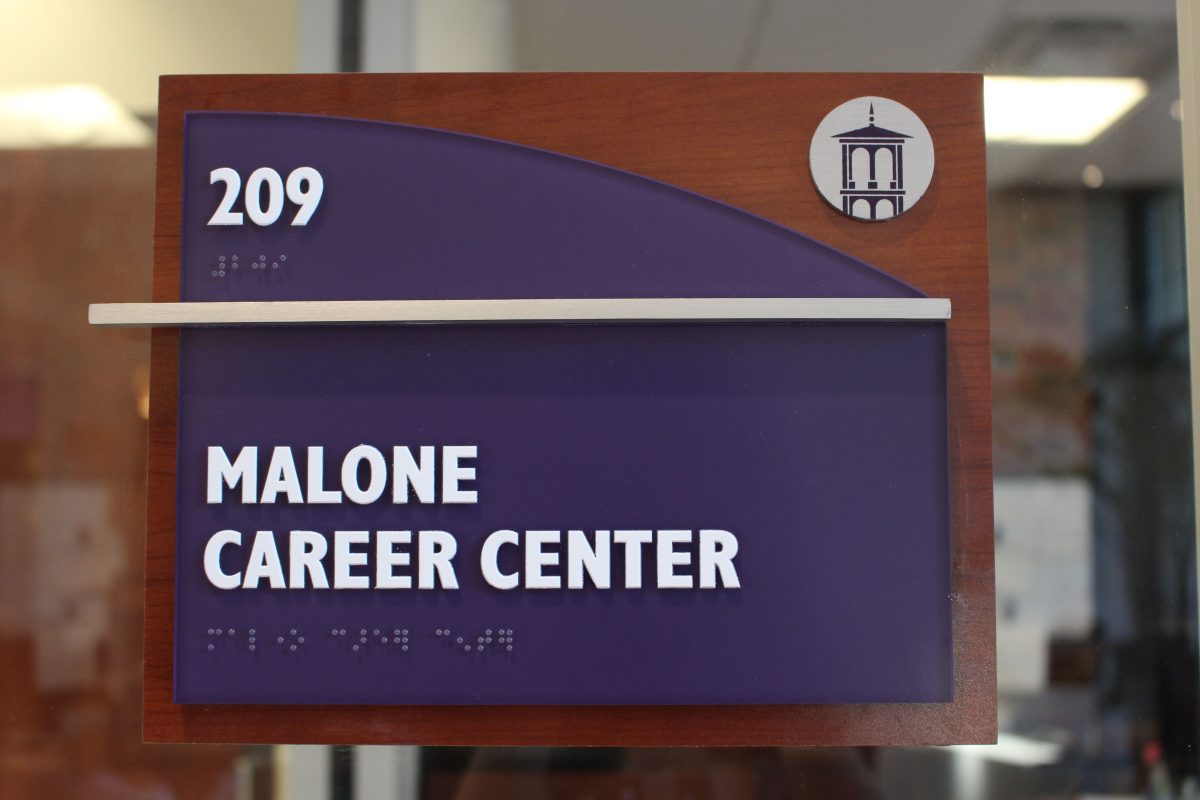By Dr. John Barker, Director of Malone Career Center
As the Director of the Malone Career Center, I would like to offer clarification and some corrections to Sidney Dills’ editorial, Career Fair Represents Bias in a Liberal Arts Degree, in the Oct. 30 edition of the Paladin. The editorial suggested that the Career Fair was skewed toward accounting, business, and management employers, and pointed out that other areas, such as science and technology, were not represented. Those of us in the Career Center were puzzled by this because there were organizations in attendance that recruit from these disciplines – Michelin, Milliken, and Ortec are three examples. It is not clear why this was omitted from the article.
What many people do not know is that in college career center recruiting across the country – not just at Furman – there has always been a disproportionate number of business/corporate employers represented in Career Fairs and on-campus interviewing. The reason for this is that corporations are better staffed and have more resources to send recruiters to various campuses. Non-profits, governmental agencies and other relatively lower-funded organizations usually do not have the same financial ability to keep recruiters on the road as do the major corporations.
There is also a common misconception that college career centers are not doing their job when a specific company, or type of company, is not seen on the list of employers participating in a Career Fair. The reality is that every employer is selective in where they send their recruiters. The more “active” employers often develop lists of target schools they will engage with for on-campus recruiting. A variety of factors are considered when making these decisions (i.e. student population, variety of majors, percentage of students entering the job market vs. graduate school, location/proximity to a major city, alumni relationships, perceived “fit,”). The number of target schools for each employer is more conservative (and rigid) than most may assume; even the largest employers rarely recruit on more than three to five percent of college campuses – and that is the largest corporations; most employers recruit on less than one percent of college campuses.
Because of our size, Furman can be at a disadvantage since we generate fewer employment-seeking candidates than larger, public and private institutions (on an annual basis, about 40 percent of new Furman graduates report pursuing graduate school over employment). Faced with this reality, the Furman Career Center takes a proactive approach and we diligently invite hundreds of employers to recruit in some capacity, whether that be by attending the Career Fair, hosting individualized recruiting events (like an information session), setting up on-campus interviews, or posting full-time opportunities to the Paladin Job Board. Included in these invitations are dozens of employers in industries that Ms. Dills’ editorial suggested that we do not target including the sciences and other underrepresented sectors. So while we may not have had the diversity of employers Ms. Dills thought we should have at the Career Fair, when it comes down to it, we can encourage employers to attend but we cannot force them.
The suggestion in the editorial that we expand our services to help students outside of just the business fields shows a lack of understanding of what we do in the Career Center. We have always provided career assistance for students interested in non-business areas. What is important to understand is that our most effective job search assistance is not through the on-campus recruiting programs – those that have a lot of visibility like the Career Fair – but by working with students individually and referring them to employers and alumni with whom we have connections in a broad variety of career fields. These connections include hundreds of employers and thousands of alumni that do not necessarily participate in the Career Fair or other on-campus recruiting programs. We work with students seeking both business and non-business careers every day and have countless success stories. Again, the editorial unfairly ignored this.
A major inaccuracy conveyed in the editorial is the “suggestion” that the Career Center should expand their services to include helping students with writing a curriculum vitae (CV), a form of resume commonly used in the scientific, research, and academic communities. With very little checking, the editor would have found out that we do this every day! Not only do we do this individually with students, we conduct seminars in conjunction with academic departments and have received accolades from both faculty and students for our assistance. It is not clear why this was not checked prior to publishing the article.
Contrary to what was suggested in the editorial, our mission at the Career Center is to serve ALL students, regardless of their major or what career path they choose to pursue. When we meet with students about their job search, we encourage them to take a diversified approach – attending the Career Fair is just one of the many strategies a student should implement. We realize each student’s situation is unique and welcome opportunities to meet with students one-on-one to provide individualized assistance. We offer a wide-array of web resources, handouts and tools that students can use in conjunction with participating in recruiting activities that take place on-campus. While we are constantly seeking to improve how we serve students, the fact that Furman’s Career Center has been used as a model for other schools attests to the value and efficacy of our programs. We invite all students to take advantage of these services.
The Career Center staff appreciates the Paladin providing us with the opportunity to set the record the straight.









































